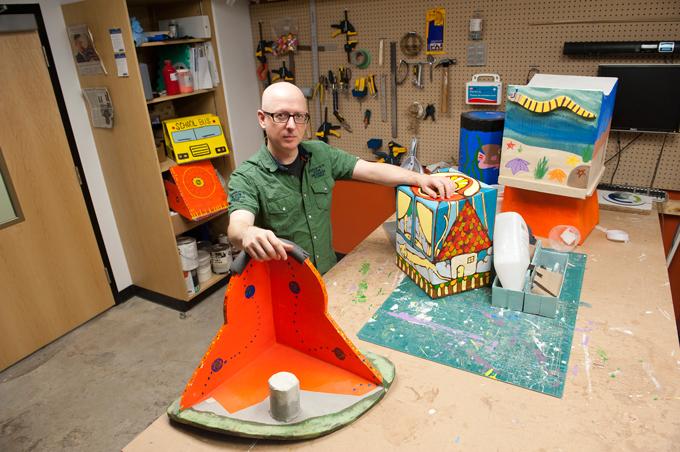By Jacob Dubé
What do you do when the world around you doesn’t fit to your needs?
You redesign it.
That’s what Ryerson School of Early Childhood Studies professor Jason Nolan is doing with his work on the Adaptive Design International (ADI) project in Bolivia.
The goal of the ADI project is to create custom adaptable designs of things like furniture for children with special needs. Nolan said the idea for the project came slowly, as he was beginning to create some custom designs. He realized other people around the world were creating designs like these but there was little opportunity to share them.
“Because I had a strong background in informal learning environments and online learning environments, I realized that I could use these skills to develop a social media environment where people could learn techniques of creating adaptations for special needs children, teach others about what they had done or just share the designs they created,” said Nolan via email.
The project, a part of the Experiential Design and Gaming Environments (EDGE) Lab — of which Nolan is the director — received a $100,000 grant from Grand Challenges Canada, funded by the Canadian government, to build a lab in Cochabamba, Bolivia. The lab is set to help orphanages in the area by creating designs that will help the children based on their needs. Nolan said the lab could then connect with EDGE back in Canada to share their ideas.
“This is a slow process of building shared understanding and trust,” Nolan said. “Initial projects include things as simple as seating devices and basic therapeutic devices made out of cardboard, all the way up to low-cost customized augmented and alternative communication devices that will help nonverbal children with limited mobility to communicate.”
Though Nolan himself hasn’t been to the lab in Cochabamba yet, his colleague and Ryerson associate professor of early childhood studies Aurelia Di Santo went down to work directly with the team there. He plans to travel down in May and is “very excited and looking forward to meeting face-to-face people who I’ve been communicating with [for] so long online.”
Nolan is autistic, which he says helps him with his designs because he views the world from a different perspective.
“I find that my attention always shifts towards the edges and gaps of things. I’m always aware of what is forgotten, ignored or left behind. I’m always thinking about the assumptions that we make, and I question those assumptions,” he said.
Nolan said he’s always been uncomfortable with how disabled people are marginalized by society, and he’s aware of how designs focus on a standard definition of a person.
“Combining these two notions has led to a sense that we need to be able to create tools that will allow everyone to create things that they need in their lives without having to wait for someone else to design for them,” Nolan said. “I think the design should be radically individualizable, and the design processes should start with the [individuals] who use an object, and not with the designer or engineer who merely wants to create things for others.”
At EDGE, Nolan and his team launched the Responsive Ecologies Lab (RE/Lab). The lab uses fields like engineering, architecture and health sciences to “ensure that technologies become a more meaningful and useful part of our lives” by creating things like learning-based games and built environments, like the ADI project.
“I think my approach has emerged because of who I am as an autistic, and how I see the world,” Nolan said. “Yet, at the same time, I think that we all can expand our awareness towards the margins, and the marginalized, and see new opportunities to imagine and invent new tools and technologies that will help us create solutions for ourselves. That is a really interesting challenge.”
The ADI project’s goal for the future is to help locals in Bolivia develop a design lab of their own where they can learn to create advancements for special-needs children.
“I’ve never had the opportunity to have a lab such as we are establishing in Bolivia where we can have direct and sustained interaction with a number of children over many years,” Nolan said. “I’m very excited for this phase to begin so that we can move from short one-off experiments to a long-term sustained design project that will help to put these ideas to the test, and hopefully represent improvement in the lives of these children.”










Leave a Reply